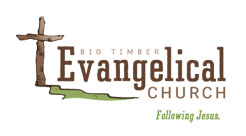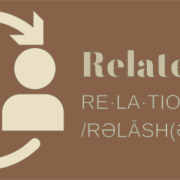Relate: We Are All Helpers – Week 3, Day 2
We Are All Helpers
Ed Welch in the book Side by Side: Walking with Others in Wisdom and Love says that we are all helpers. We need help and we need to help others. And we help more often than we realize. We listen to a friend or a spouse about what happened at work or we give advice to people going through a difficult circumstance.
Ed Welch says, “We were meant to live that way. We were meant to walk side by side, an interdependent body of weak people. God is pleased to grow and change us through the help of people who have been re-created in Christ and empowered by the Holy Spirit.”
You may or may not be able to identify with what Ed Welch is saying but to some extent or another its truer than you realize.
Fear Keeps Us from Being Helped and Helping
Admit it. Outside of laziness, fear is what keeps us from helping others. It’s hard to be vulnerable with other people. In addition, something in us yells “Don’t get involved in other people’s lives.” And what qualifies us to get involved in other people’s lives anyway? Most of us have enough of our own stuff to deal with. And stuff doesn’t just mean busyness. We have our junk. We have our hang-ups, hardships, and (bad) habits. Therefore, we feel unqualified until we get our junk together. But nicely arranged junk is still junk.
Neediness as a Strength
So, what does qualify you to help others? Ed Welch says that it is your own neediness. That may seem counter-intuitive and yet every 12-step group has sponsors who help new members. The 12-step sponsor doesn’t help just because of their own success. They help out of and because of their own need.
The Apostle Paul talks about this. Paul says that it is out of our own troubles that we are able to help others when they happen to be going through troubles. Read and think through his words.
How God Uses Troubles
2 Corinthians 1:3–7 (NIV)
3 Praise be to the God and Father of our Lord Jesus Christ, the Father of compassion and the God of all comfort, 4 who comforts us in all our troubles, so that we can comfort those in any trouble with the comfort we ourselves receive from God. 5 For just as we share abundantly in the sufferings of Christ, so also our comfort abounds through Christ. 6 If we are distressed, it is for your comfort and salvation; if we are comforted, it is for your comfort, which produces in you patient endurance of the same sufferings we suffer. 7 And our hope for you is firm, because we know that just as you share in our sufferings, so also you share in our comfort.
The amazing thing about this passage is that God comforts us, so we can comfort others. The things we go through are God things in the sense that God uses every single experience for his work. When you need comfort, it’s quite likely that God’s comfort will come in the form of another person. And when another person needs help it’s quite likely that you can be God’s comfort.
In the Flesh Help
God designed relationships to work person to person. Even the coming of Christ was an incarnational event. Incarnation means embodied or taking on flesh. God designed help to come through real-life relationships where people are coming alongside each other and walking side-by-side. He knew that we need help. That’s the beauty of the Gospel story. His help comes to us directly from heaven. His help comes in the form of a person, Jesus Christ.
Relationship Circles
Our first responsibility is family. Give the bulk of your free time to your family. Because your family is “always there” and they will be there in the future (we think), they are also the easiest people in our life to neglect. It’s important for husbands and wives to give each other time, develop their friendship, and pursue greater intimacy. It’s important for parents to daily help their children enjoy life and see the world with greater clarity.
Close friends are the next circle of influence in life. Friends are often our best support because they care about us and we care about them. We can also “be ourselves” easier around our friends. We need them, and they need us. The danger we face in friendship is superficiality. Everything ends up being on the surface. Therefore, it’s important for us to ask, “How are you really doing?”
Work relationships and chit chat friendships might be the third circle of relationship. These relationships are most often less frequent or very frequent but less deep. And yet, these relationships are often opportunities to encourage others with a cheerful attitude and a spirit of care, compassion, and service. These relationships rewarding. They are encouraging.
Personal Reflection
Who might be the people in each relationship circle in your life? How might the circles get out of place? And how might God have you comfort, encourage, or support the people in your relational circles?
As you think about healthy relationships you might ask yourself these questions as a daily check-in.
- Did I do my best to see God’s hand in my daily walk?
- Did it do my best to be kind to everyone today?
- How many minutes of quality time and conversation did I give to _______________ (my spouse, my children, others)?
- Did I do my best to serve my family first?
- Did I do my best to be thankful for the people and things God has put in my life? How did I do my best to practice gratitude?
Prayer Prompt:
Father, thank you for being my encourager and comforter. Help me to encourage and comfort others out of the encouragement and comfort you have given me.





